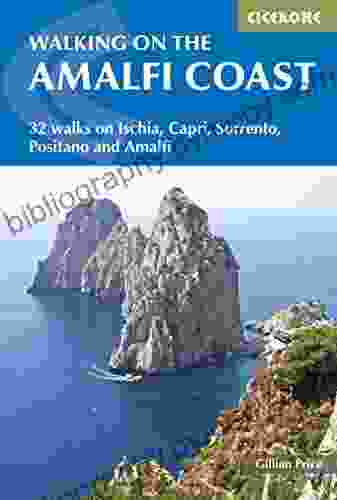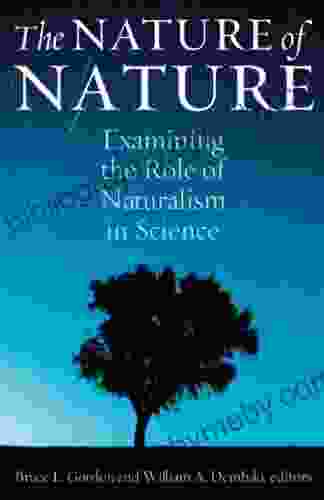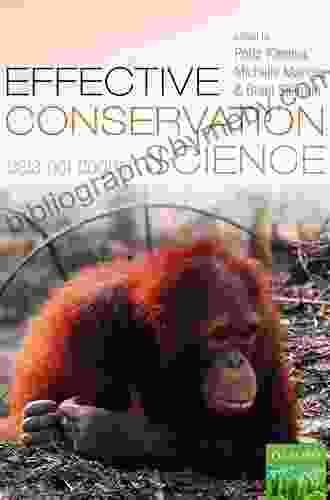Examining the Role of Naturalism in Science: Unraveling the Philosophical Foundations


4.7 out of 5
| Language | : | English |
| File size | : | 7642 KB |
| Text-to-Speech | : | Enabled |
| Screen Reader | : | Supported |
| Enhanced typesetting | : | Enabled |
| Word Wise | : | Enabled |
| Print length | : | 258 pages |
| Lending | : | Enabled |
Naturalism, a philosophical perspective that posits that all phenomena can be explained in terms of natural causes and processes, has profoundly influenced the development of modern science. This article explores the intricate relationship between naturalism and science, tracing its historical roots, examining its foundational principles, and discussing its far-reaching implications for our understanding of the natural world.
Historical Roots of Naturalism in Science
Naturalism has its roots in the Enlightenment, a period in European history marked by a surge in rationalism and skepticism. During this time, philosophers such as Francis Bacon, René Descartes, and John Locke began to question the prevailing belief in supernatural forces and argued instead that the natural world could be understood through observation and reason.

These ideas gained momentum in the 18th and 19th centuries, as scientists made significant advances in fields such as physics, chemistry, and biology. The success of these sciences in explaining natural phenomena without resorting to supernatural forces further solidified the position of naturalism in the scientific community.
Foundational Principles of Naturalism
Naturalism rests on several foundational principles:
- The natural world is all that exists. There is no supernatural realm or divine intervention.
- Natural phenomena have natural causes. All events can be explained by natural laws and processes.
- Science is the best way to understand the natural world. Science relies on observation, experimentation, and rational inquiry to uncover the truths of nature.
These principles provide a framework for scientific inquiry, guiding scientists to focus on phenomena that can be observed and tested empirically.
Implications of Naturalism for Science
Naturalism has had a profound impact on the development of science:
- Objectivity and Rationality. Naturalism promotes objectivity in science by emphasizing the importance of empirical evidence and logical reasoning.
- Focus on Natural Causes. Naturalism directs scientists to seek explanations for natural phenomena within the realm of natural laws and processes.
- Methodological Naturalism. Methodological naturalism, a widely accepted approach in science, assumes that supernatural explanations should not be invoked unless there is compelling evidence to support them.
Naturalism has also influenced the way scientists approach questions about ethics, consciousness, and the origin of life, challenging traditional beliefs and opening up new avenues for exploration.
Challenges to Naturalism
While naturalism has been a guiding force in science, it has also faced challenges:
- The Problem of Consciousness. Some philosophers argue that consciousness cannot be fully explained by natural processes, suggesting the need for a non-naturalistic approach.
- The Limits of Science. Naturalism assumes that science can explain all natural phenomena, but some argue that there are limits to what science can know and explain.
- Metaphysical Concerns. Naturalism faces metaphysical challenges related to the nature of reality, such as the question of whether the natural world is all that exists.
These challenges continue to stimulate philosophical debate and encourage ongoing exploration of the relationship between naturalism and science.
Naturalism has played a pivotal role in shaping the development of modern science, providing a philosophical framework that emphasizes the natural world, natural causes, and science as the best way to understand it. Its foundational principles have guided scientists to make remarkable discoveries and deepen our understanding of the universe. While naturalism has faced challenges, it remains a powerful philosophical perspective that continues to inspire and shape scientific inquiry, pushing the boundaries of our knowledge and understanding of the natural world.
4.7 out of 5
| Language | : | English |
| File size | : | 7642 KB |
| Text-to-Speech | : | Enabled |
| Screen Reader | : | Supported |
| Enhanced typesetting | : | Enabled |
| Word Wise | : | Enabled |
| Print length | : | 258 pages |
| Lending | : | Enabled |
Do you want to contribute by writing guest posts on this blog?
Please contact us and send us a resume of previous articles that you have written.
 Book
Book Novel
Novel Page
Page Chapter
Chapter Text
Text Story
Story Genre
Genre Reader
Reader Library
Library Paperback
Paperback E-book
E-book Magazine
Magazine Newspaper
Newspaper Paragraph
Paragraph Sentence
Sentence Bookmark
Bookmark Shelf
Shelf Glossary
Glossary Bibliography
Bibliography Foreword
Foreword Preface
Preface Synopsis
Synopsis Annotation
Annotation Footnote
Footnote Manuscript
Manuscript Scroll
Scroll Codex
Codex Tome
Tome Bestseller
Bestseller Classics
Classics Library card
Library card Narrative
Narrative Biography
Biography Autobiography
Autobiography Memoir
Memoir Reference
Reference Encyclopedia
Encyclopedia Mark Hatmaker
Mark Hatmaker G Pascal Zachary
G Pascal Zachary Michael Bigelow Dixon
Michael Bigelow Dixon George E Vaillant
George E Vaillant Ronald W Doerfler
Ronald W Doerfler Linda J Tomko
Linda J Tomko Gavin Fairbairn
Gavin Fairbairn Joseph F Healey
Joseph F Healey Martin Oliver
Martin Oliver Mary Zaccagnini
Mary Zaccagnini George Howe Colt
George Howe Colt Gary D Miner
Gary D Miner Gayle Forman
Gayle Forman Gary Greene
Gary Greene Karen Hull
Karen Hull George S Day
George S Day Jim Koch
Jim Koch Gareth Russell
Gareth Russell Gordon Ramsay
Gordon Ramsay Gail B Macdonald
Gail B Macdonald
Light bulbAdvertise smarter! Our strategic ad space ensures maximum exposure. Reserve your spot today!

 Eliot FosterUnravel the Secrets of the Gods: "Deceit of the Gods Part I: Legacy of the...
Eliot FosterUnravel the Secrets of the Gods: "Deceit of the Gods Part I: Legacy of the...
 Derek BellUnleash the Fire of 'Court of Dragons: Dragon Isle Wars' - Your Epic Fantasy...
Derek BellUnleash the Fire of 'Court of Dragons: Dragon Isle Wars' - Your Epic Fantasy...
 Jordan BlairHow to Write Winning Scholarship Essays: A Comprehensive Guide to Crafting...
Jordan BlairHow to Write Winning Scholarship Essays: A Comprehensive Guide to Crafting... Henry Wadsworth LongfellowFollow ·13.5k
Henry Wadsworth LongfellowFollow ·13.5k Chinua AchebeFollow ·9.7k
Chinua AchebeFollow ·9.7k Ron BlairFollow ·5.2k
Ron BlairFollow ·5.2k Aaron BrooksFollow ·15.4k
Aaron BrooksFollow ·15.4k Brady MitchellFollow ·9.2k
Brady MitchellFollow ·9.2k Ricky BellFollow ·12.8k
Ricky BellFollow ·12.8k Douglas FosterFollow ·2.2k
Douglas FosterFollow ·2.2k Joseph HellerFollow ·5.9k
Joseph HellerFollow ·5.9k

 Brian West
Brian WestSmedley Butler: The Marines and the Making and Breaking...
: A Marine's...

 Gabriel Garcia Marquez
Gabriel Garcia MarquezIschia, Capri, Sorrento, Positano, And Amalfi: An...
Explore the...

 Felix Carter
Felix CarterAdorn Your Little Princess with Fleur Ange's Exquisite...
Welcome to the enchanting...

 Kelly Blair
Kelly BlairUnveiling the Secrets of the Historical Way and Fishermen...
Step into the pages...

 Angelo Ward
Angelo WardKnit the Cutest Thumbless Mittens for Your Little One:...
Prepare to be...
4.7 out of 5
| Language | : | English |
| File size | : | 7642 KB |
| Text-to-Speech | : | Enabled |
| Screen Reader | : | Supported |
| Enhanced typesetting | : | Enabled |
| Word Wise | : | Enabled |
| Print length | : | 258 pages |
| Lending | : | Enabled |








